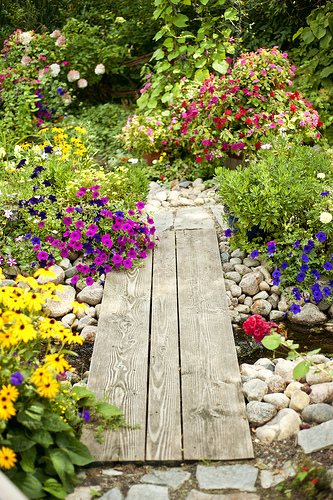If you love outdoors and don’t mind hard work, this may be a right thing for you. Have a look at what you need to do in order to start earning your living with a gardening business.

Think of a business plan and the funding
Decide what services you will provide as a professional gardener. Use this to think about assets you will need. Consider the manpower involved. Create a price list based on the predicted expenses and current offer available on the market. Decide what category you will start your business under. Once you put all of this together, you will have a rough idea on what your initial capital should be. Depending on which country you are from, make an inquiry as some local governments offer start-up loans and start-up benefits for certain categories of self-employed people.
Set up an office and obtain a license and insurance
The cheapest option for you is to set up a home office and thus avoid paying rent. The type of the business you decided to open will determine what licenses you need to obtain. It is best to get a professional legal advice and avoid overseeing important details. The insurance policy you choose should first of all be a legal minimum advised for the business you run and also include the instances which will protect both your business and your staff.
Get training
The fact that you have decided to start a gardening business means that you probably know a thing or two about gardening that you enjoy it, and are good at it. However, as with any branch of industry, there are a lot of different things, so there must be things you do not know. Compare your services to those of your competitors. Make a list. See what it is that they provide and you don’t. Think of a service you can offer that would make you stand out. Analyze your list and try to attend as many training courses as you can, consider the money and the time involved, you do not have to do them all at once.
Select your staff
To begin with, you will need a helping hand, someone who will physically get the workload off you. This person should be capable, physically strong and a good team player. They don’t necessarily have to be too savvy. Secondly, hire savvy staff. Even with training, you will not be able to cover all there is to gardening so hire someone to fill in the holes. Do not get carried away with the number of staff members, you will easily get more staff as your business grows.
Obtain appropriate equipment
First of all, you will need something to equip your office. I imagine a computer and a printer will do. Second, you need gardening equipment, basic tools for planting, trimming and weeding. It may be a good idea to look for second handed commercial power equipment as it can be very expensive. However, you can start with a basic lawn mower if you are doing residential areas but as soon as you move onto commercial customers you will need commercial equipment to make your work easier. You will need lawn mowers, leaf-blowers, whipper-snippers, gardening hose, and at least 30m retractable hose reels. More specialized equipment is best to be obtained as you go since you do not want to end up buying something you will not use.
Promotion
Since you have already invested a lot of time and funds, make an additional expense and create a website. You should advertise locally. You can use your website to reach out to companies and offer your services. It will save you a lot of time. Having several commercial clients will probably cover your basic monthly expenses as they are more likely to sign a long-term contract for ongoing maintenance. When it comes to residential customers, you can hand out flyers and put up posters. Make sure you make your customers happy and keep them that way as they are bound to bring more customers down your way. Have your business registered in local business directories.
You will need a lot of effort and persistence but your business definitely has a bright future. Most of us like living in a suburban house but one needs to work a lot to maintain that lifestyle. This is where you fit into the story, a lot of busy people with no time to tend to their gardens.
